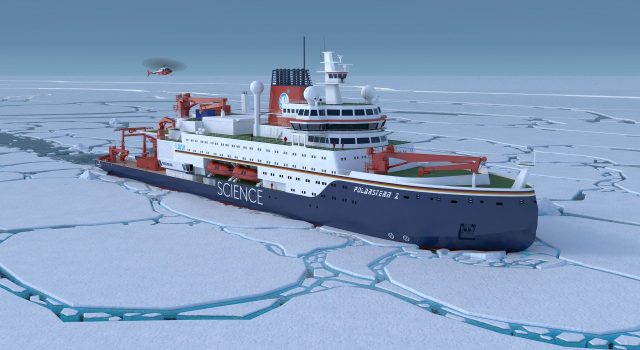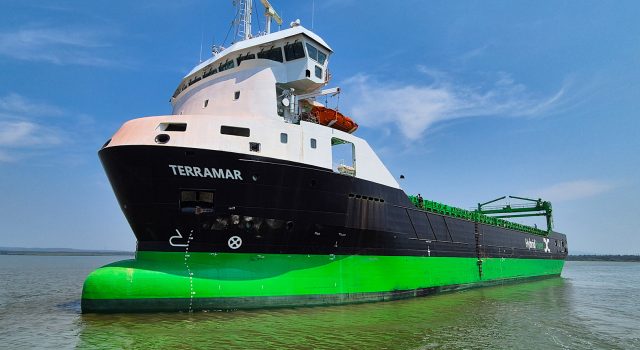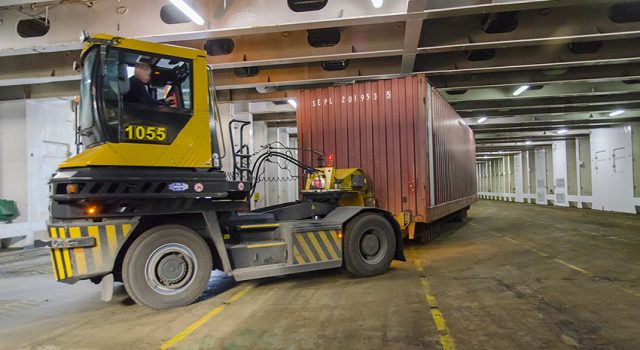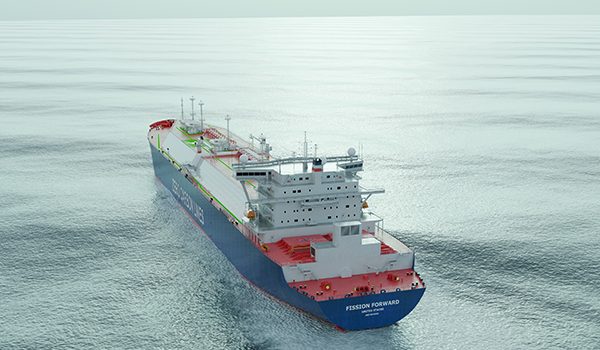The aim of the EUROCARRIER train ferry is to connect Finland to the European TEN-T railway networks and create a connection across Eastern Europe to Central Europe and the Mediterranean.
Approximately 400,000 trucks per year, or almost 1,100 trucks per day travel on car ferries between Finland and Estonia. The emission footprint from heavy goods vehicles (road cargo) is more than five times greater than rail traffic, so significant emission reduction can be achieved by shifting a portion of the cargo from road to rail.
The vessel will operate in the Baltic Sea and have a capacity of more than 1,000 lane meters for train cargo and an additional 1,500 lane meters for trucks. The objective is to develop the world’s greenest train ferry by optimising the design and selecting machinery system compatible with alternative fuels such as LNG and green hydrogen.
– We strive to make the train ferry climate-friendly and profitable. The train ferry will have multifuel marine engines that can run on either pure LNG, a mixture of LNG and green hydrogen or Marine Gas Oil (MGO). Ships propulsion system is arranged by two 360-degree rotating POD’s which increases the propulsion efficiency and ships manoeuvrability. Deltamarin is well acquainted with these technologies and their manufacturers and combines them with their own advanced ship design knowledge. In addition, they have well proven experience in supervising the ships construction process, says Kaj Jansson, Member of the Board of FENNORAIL Ltd.
– We are very happy that Fennorail with its partners have selected Deltamarin to design this unique vessel, which aims to connect Finland to the European railway network and support the goals of the Paris Agreement by moving part of the road cargo onto rail, offering significant emission cuts per transported cargo tonne-kilometre. Deltamarin is known as the leading designer for environmentally friendly vessels, and this project is a good continuation of our pathway towards zero-carbon shipping, says Deltamarin’s Sales Manager, Jaakko Lappi.
Work is already on-going and will be done at the Deltamarin offices in Finland.









